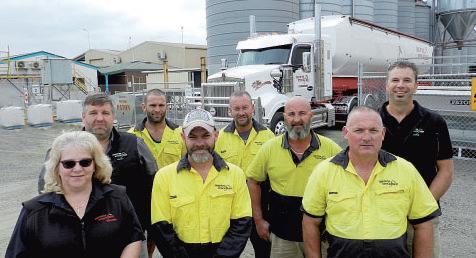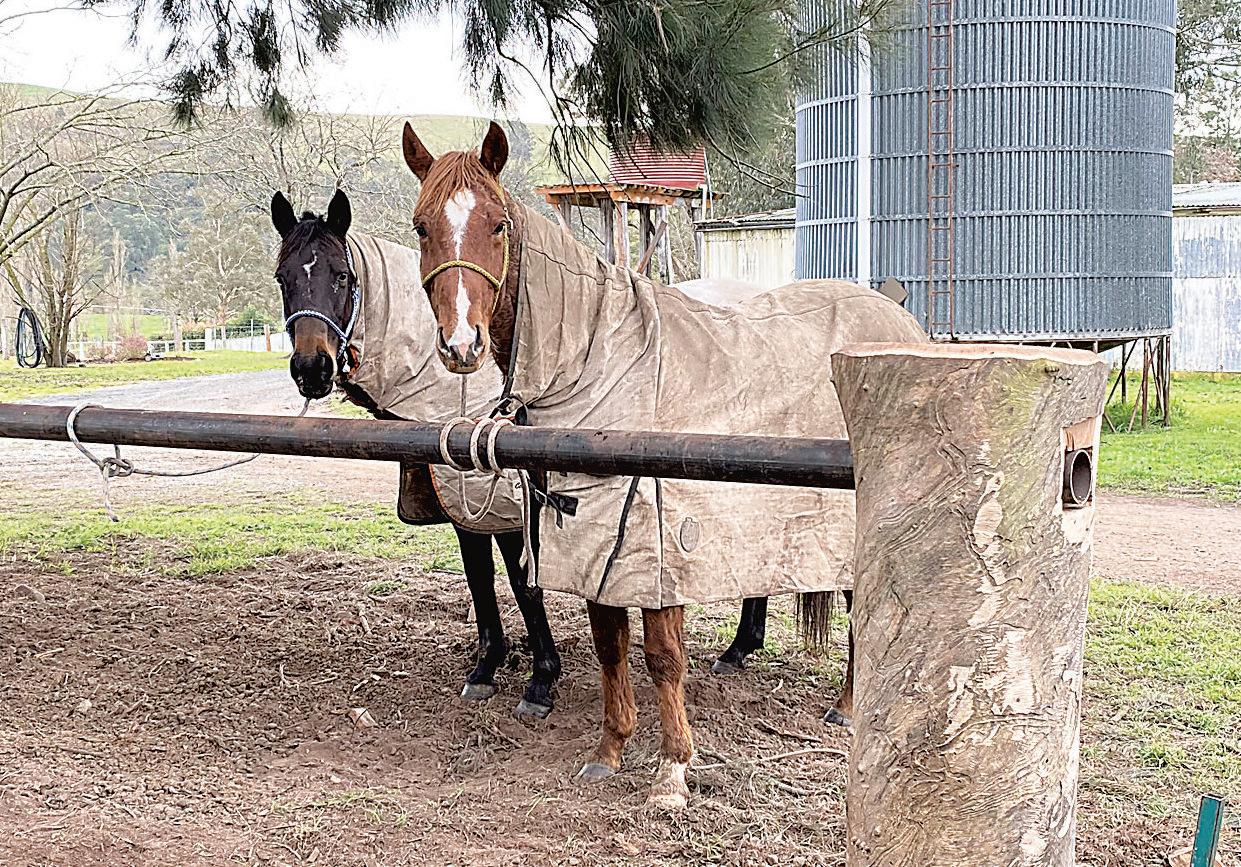
4 minute read
Lustre
YourYour “one “one stop stop shop” shop” for for all all your bulk & bagged stockfeed, nutritional advice and rural merchandise requirements

Advertisement

GP1 63671 4
• Locally owned • Products manufactured on site • Employing locals
Free delivery in Gippsland

62020 HeyfiH fieldld U Upper Maffra Road Tinamba Ph 5145 West 1345 Matt Mob: James - S 0488 623 ales 159

● Fertilizer Gypsum Lime
GP1 64599 1
76 PRINCES HWY, SALE PHONE 5143 0075


GP1646211 www.gippslandtimes.com.au
Sheep health concerns
ANIMAL experts have shed concern for sheep health this season, as rising rates of sickness in ewes feeding twin lambs, problems with internal parasites, and foot issues persist. Senior Veterinary Officer Dr Jeff Cave is among the experts who have raised concerns for sheep health this season following recurring issues brought to his attention by various producers. “This year I have been hearing of difficult lambings due to large single lambs, sickness in ewes feeding twin lambs, problems with internal parasites, and foot issues,” Dr Cave said. “I consider these issues are related to this year’s seasonal conditions. “Think back to late summer, usually a time of hot, dry conditions and a feed deficit, when we had abnormally high rainfall and pasture growth resembling the height of spring. “This would have led to pregnant ewes being in a higher average body condition score than normal, leading to larger than normal single lambs and lambing difficulties. “It would have also led to higher-than-normal worm burdens and the breakdown of summer worm control programs. “Furthermore, these conditions would have favoured the expression and spread of benign and virulent footrot in those flocks that have it. “Moving forward a few months to recent times, worm burdens will have continued to build, and foot issues will have continued to express themselves. “For most flock owners, a drenching program guided by faecal egg counts, and foot bathing for flocks that require it, will be the best way of managing this situation,” he continued. “Overall, in many cases, there has been a lowering plane of nutrition, meaning that ewes in high body condition feeding twin lambs were in an energy deficit and had to use their fat reserves to compensate, the result being pregnancy toxaemia or ‘twin lamb’ disease. “This is best improved by using an energy-rich supplement such as grain or pellets.” Dr Cave said a complex management plant is needed to control the issues and advises producers to contact their local veterinarian, Agriculture Victoria veterinary, or animal health officer for further direction.
Educational project coming to East Gippsland
LOCAL horse owners are being encouraged to apply for a new course, scheduled to begin this month. The Healthy Equine Land Practices (H.E.L.P.) project aims to educate East Gippslanders about everything horse-related, from pasture management to property design and animal health issues. Southern Farming Systems’ Nat Jenkins is one of the organisers of the project, and a horse enthusiast. Ms Jenkins says she is often queried by horse owners about pastures and horse management. “This course is fantastic, because you get a free soil test and a free interpretation of it, an aerial picture of your property, a property design and access to vets,” she said. “We’ll also cover managing pastures and animal health issues like worms and condition scoring, and with the property design we’ll look at managing a fat pony’s nutritional needs as opposed to those of an eventing horse.” The H.E.L.P. project will run in East Gippsland over 10 months, consisting of six two-hour sessions, roughly a session every six weeks. Each workshop will have a specialist presenter teaching five different themes. The themes include the basics such as how to take a soil test or get an aerial map of your property, through to healthy soils, pastures, horse nutrition, and property design. The final session is a celebratory graduation dinner. “The idea is to have 30 people divided into two groups of 15, to keep numbers low and allow participants to learn from each other,” Ms Jenkins said. “We know horse owners are busy people with many commitments, so the first session (the basics) will decide the day of the week and timing. “Possibly weekday nights for one group and weekends for the other group, hoping to make it easier for anyone to participate. “The group will also decide the location of the
The Healthy Equine Land Practices project aims to educate horse owners. Photo: Contributed

events, with the aim of keeping things central to reduce travel time. “The best bit is (that) you’ll get to learn with a group of like-minded horse lovers.” The H.E.L.P. Project is a collaborative effort, run by Regional Landcare East Gippsland, Southern Farming Systems, the East Gippsland RALF Project and the East Gippsland CMA. It is supported by East Gippsland Catchment Management Authority through funding from the Victorian Landcare Program and the federal government’s National Landcare Program. The cost for participating is $110 per person, with the location of the workshops to be determined by the full list of applicants. Interested participants are advised that the program is already half-filled, and are encouraged to register their interest quickly. For more information, phone Penny Gray from the Far East Landcare, Orbost office, on 0429 142 225.









